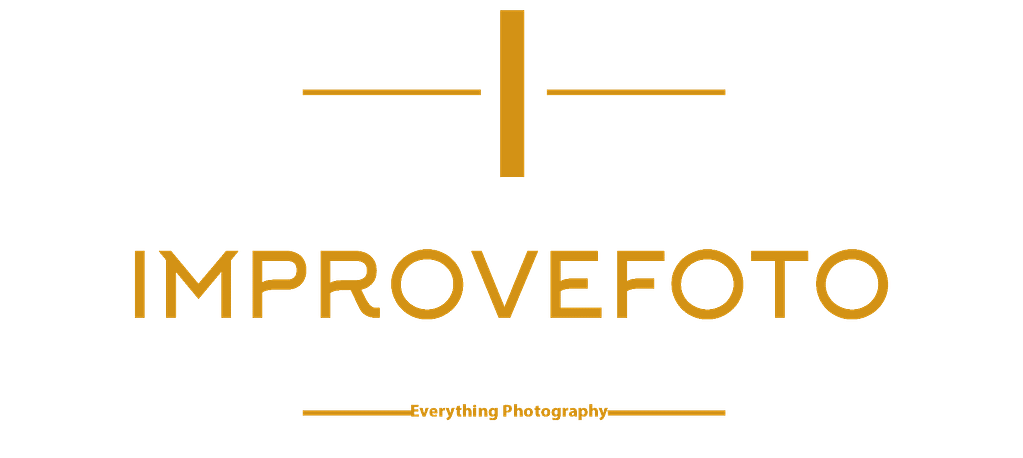The world of photography is vast and diverse. It offers a myriad of opportunities for those with a keen eye and a passion for capturing the world through a lens. Exploring different photography jobs can open up exciting career paths.

Yet, landing your dream photography job can be a daunting task. It requires more than just talent and creativity. You need to understand the job market, build a standout portfolio, and network effectively.
This guide aims to help you navigate the complex landscape of photography jobs. It provides actionable advice and industry insights to help you turn your passion into a career.
Whether you’re interested in real estate photography, freelancing, or exploring opportunities in the gig economy, this guide has got you covered.
So, let’s dive in and explore how you can land your dream photography job.
Understanding the Photography Job Market
The photography job market is dynamic and ever-evolving. It’s influenced by technological advancements, changing consumer preferences, and economic factors.
In recent years, the market has seen significant growth. This is largely due to the rise of digital media and the increasing demand for high-quality visual content.
- The U.S. Bureau of Labor Statistics predicts a 4% growth in photography jobs from 2019 to 2029.
- The rise of social media platforms has created new opportunities for photographers.
- The demand for specialized photography services, such as drone and 360-degree photography, is on the rise.
The gig economy has also had a profound impact on the photography job market. More photographers are now choosing to work as freelancers or independent contractors. This allows them greater flexibility and the opportunity to work on a variety of projects.
Understanding these market trends and dynamics is crucial in planning your career in photography. It helps you identify opportunities and make informed decisions about your career path.
Crafting a Standout Photography Portfolio

A well-crafted portfolio is a photographer’s most powerful marketing tool. It showcases your skills, style, and vision to potential clients and employers.
Your portfolio should reflect your unique perspective and creativity. It should tell a story about who you are as a photographer.
- Include a variety of work that showcases your versatility and range.
- Highlight your best work, not just your most recent projects.
- Show personal projects that reflect your passion and creativity.
Remember, quality trumps quantity. It’s better to have a few exceptional images than a large collection of mediocre ones.
Your portfolio should be regularly updated to reflect your growth and evolution as a photographer. It’s your visual resume; make it count (click here for a sample portfolio)
Building Your Online Presence
In today’s digital age, having a strong online presence is crucial for photographers. It’s where potential clients will first encounter your work.
Your online presence should be more than just a portfolio. It should reflect your brand, your values, and your unique selling proposition.

- Create a professional website that showcases your portfolio and provides information about your services.
- Regularly update your website with new work, blog posts, and client testimonials.
- Leverage social media platforms like Instagram, Facebook, and LinkedIn to reach a wider audience.
Remember, consistency is key. Your online presence should be a true reflection of your work and your brand. Make it easy for potential clients to find and contact you.
Networking and Industry Connections
Networking is a powerful tool for photographers. It can open doors to opportunities and foster valuable relationships.
- Attend industry events, workshops, and seminars to meet other photographers and potential clients.
- Join online photography communities and forums to connect with peers and share your work.
Photography agencies can also play a significant role in your career. They can help you find photography jobs and negotiate contracts.
However, remember that building genuine relationships takes time. Be patient, be authentic, and be open to learning from others.
Real Estate Photography: A Lucrative Niche
Real estate photography is a profitable niche in the photography job market. It involves capturing properties in a way that attracts potential buyers.
Understanding the specifics of real estate photography jobs is crucial. You need to know how to highlight the best features of a property. You also need to understand the client’s needs and expectations.
The equipment you use can greatly impact the quality of your photos. A wide-angle lens is essential for capturing entire rooms or exteriors. A tripod can help ensure sharp, well-composed shots.

- Invest in a good quality camera and lenses.
- Consider additional equipment like drones for aerial shots or lighting equipment for indoor photography.
Mastering the skills required for real estate photography can set you apart. This includes understanding lighting, composition, and post-processing. Continuous learning and practice are key to success in this niche.
Pricing Your Photography Services
Pricing your photography services can be a challenging task. It’s important to strike a balance between competitive pricing and fair compensation for your work.
Understanding your value is crucial. Consider the quality of your work, your experience, and the time you invest in each project. Don’t undervalue your skills and expertise.
- Research the market to understand what other photographers are charging.
- Consider your costs, including equipment, travel, and time spent editing.
Remember, pricing is not just about covering your costs. It’s also about earning a profit. As your skills and reputation grow, don’t be afraid to increase your prices accordingly.
The Freelance Photographer’s Guide
Freelancing offers a unique path in the world of photography jobs. It provides the freedom to choose your projects and manage your time.
However, it also comes with its own set of challenges. You’ll need to handle all aspects of your business, from marketing to accounting.
- Freelancing requires self-discipline and excellent time management skills.
- You’ll need to constantly market your services to secure new clients.
Online job platforms can be a valuable resource for freelance photographers. Websites like Upwork, Freelancer, and Fiverr offer a platform to showcase your work and connect with potential clients.
Remember, freelancing is not just about taking great photos. It’s about running a successful business. With the right approach, you can turn your passion for photography into a rewarding freelance career.
Preparing for Photography Job Interviews
When applying for photography jobs, your resume and cover letter are crucial. They provide the first impression to potential employers.
Your resume should highlight your skills, experience, and achievements in photography. It should be concise, professional, and tailored to the job you’re applying for.
- Include relevant photography projects and exhibitions.
- Mention any photography awards or recognitions you’ve received.
Your cover letter, on the other hand, is your chance to express your passion for photography. It should explain why you’re the perfect fit for the job.
Preparing for the interview is equally important. Research the company, practice answering common interview questions, and prepare some questions of your own. Remember, the interview is not just about your skills but also about your personality and fit with the company culture.
Continuous Learning and Skill Development
In the ever-evolving field of photography, continuous learning is key. It’s not enough to rest on your laurels once you’ve mastered the basics.
Staying updated with the latest techniques, trends, and technology in photography can give you an edge in the competitive job market. It also helps you grow as a photographer and expand your creative horizons.
- Attend workshops and seminars.
- Enroll in online courses.
- Read photography books and magazines.
- Join photography forums and communities.
There are plenty of resources available for skill development. From online tutorials to photography workshops, there are numerous ways to hone your craft. Remember, the best photographers are those who never stop learning.
Legal Considerations in Photography Jobs
When it comes to photography jobs, it’s not all about creativity. There are legal aspects to consider as well.
Understanding contracts is crucial. These legal documents outline the terms of your work, including payment, deadlines, and rights to the images.

- Familiarize yourself with standard photography contracts.
- Consult a lawyer if needed.
- Always read contracts thoroughly before signing.
Another important aspect is image rights and licensing. As a photographer, you need to understand how your images can be used by clients and protect your rights accordingly.
- Learn about different types of image licenses.
- Use watermarks to protect your work.
- Be clear about usage rights in your contracts.
Being aware of these legal considerations can save you from potential disputes and ensure your work is protected.
Marketing Strategies for Freelance Photographers
As a freelance photographer, marketing your services is key to landing photography jobs.
You need to make potential clients aware of your skills and services. This can be done through various channels, such as social media, your website, or photography exhibitions.
- Use social media to showcase your work and engage with potential clients.
- Keep your website updated with your latest work and contact information.
- Participate in photography exhibitions to gain exposure.
Another important aspect of marketing is securing repeat business and referrals. Happy clients are likely to hire you again and recommend you to others.
- Deliver high-quality work to impress your clients.
- Maintain good relationships with your clients.
- Ask satisfied clients for referrals.
By implementing effective marketing strategies, you can increase your visibility, attract more clients, and ultimately secure more photography jobs.
Exploring Different Photography Job Roles
The field of photography offers a wide range of job roles and specializations.
From fashion photography to wildlife photography, each role requires a unique set of skills and equipment.
- Fashion photographers work with models and designers, often in studio settings.
- Wildlife photographers capture images of animals and nature, often requiring travel and patience.
Exploring different roles can help you find your niche and focus your career development efforts.
Personal projects also play a crucial role in a photographer’s career. They allow you to experiment with different styles and techniques and can often lead to unique and marketable images.
- Personal projects can showcase your creativity and versatility.
- They can also help you build a diverse and impressive portfolio.
By exploring different roles and investing in personal projects, you can broaden your skills and increase your chances of landing your dream photography job.

SEO and Online Marketing for Photographers
In today’s digital age, understanding Search Engine Optimization (SEO) is crucial for photographers.
SEO can help your website rank higher in search engine results, increasing your visibility to potential clients.
- Use relevant keywords in your website content and image descriptions.
- Regularly update your website with fresh content to improve your SEO ranking.
Online marketing strategies also play a key role in promoting your photography services. Social media platforms, email marketing, and online advertising can help you reach a wider audience.
- Use social media to showcase your work and engage with your audience.
- Email marketing can help you keep in touch with past clients and attract new ones.
By leveraging SEO and online marketing strategies, you can effectively promote your services and land more photography jobs.
Conclusion: Turning Passion into a Career
Landing your dream photography job is a journey that requires dedication, skill, and a strategic approach.
From understanding the job market to crafting a standout portfolio, building an online presence, and mastering SEO, each step is crucial.
Remember, continuous learning and networking are key to staying relevant in this dynamic field.
With passion, perseverance, and the right strategies, you can turn your love for photography into a rewarding career. Keep shooting, keep learning, and keep pushing forward. Your dream photography job is within reach.
- How to Land Your Dream Photography Job - December 29, 2024
- The Ultimate Photography Portfolio Websites - September 6, 2024
- Mastering the selective color effect in photography - March 19, 2024

